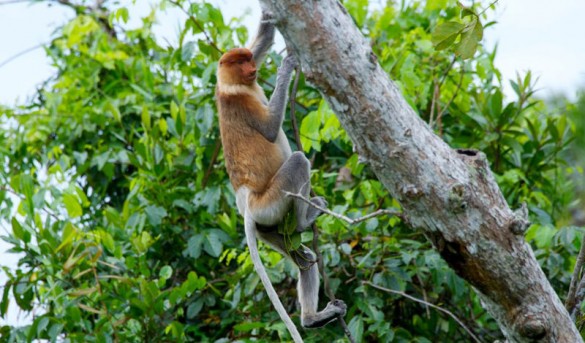Environmental protection in the Indonesian archipelago, while rather bleak historically, has been improving, especially in the last few years.
Concerns regarding mining, deforestation, as well as marine and agriculture pollution, have been the topic of many debates between a number of groups, including government institutions, NGOs, as well as the general public. When looking at the current state of legal affairs on the protection of the environment, it can be said that the debates will not diminish anytime soon.
Since the topic of environmental concerns in Indonesia is vastly outside the scope of this article, it will concentrate on the issue of deforestation. The subject of forests and logging problems, including illegal logging, gave rise to a number of laws, regulations, as well as bills that are currently being drafted.
In terms of the existing legal framework, in September 1999, Forestry Law No. 41 of 1999 (Forestry Law) replaced the 1967 Forestry Law. It included provisions on sustainability, multiple functionality of forests, and stipulated that use of forests must accommodate the dynamic of community aspirations and participation, customary and cultural values in accordance with national norms. However, Forestry Law did not provide the protection that the forests so sorely needed.
Illegal logging and timber clearing has been estimated to be responsible for over 70% of log production in Indonesia, resulting in deforestation, among many other injuries to the environment and the society, as well as losses of trillions of Rupiah in government revenues.
In October of 2009, the world saw a stronger commitment to the protection of Indonesia’s environment with the passing of Law No. 32 of 2009 on Environmental Protection and Management (Environmental Law). The purpose of this Law is to create an environmentally sustainable development through means of planning policies, maintenance, supervision, and control.
Environmental Law stipulates that the government is responsible for controlling natural resources, environmental pollution and damage, conducting environmental assessments, regulating legal actions, and controlling activities that have social impact.
It is important to note that every business/activity that can substantially impact the environment is required to secure an Environmental Impact Assessment (Amdal), Environmental Management Statement (SPPL), or an Environmental Management Efforts-Environmental Monitoring Efforts Reports (UKL-UPL) in order to ensure that the business or activity is sustainable and to obtain an Environmental License to begin operating.
The licensing process has been recently stipulated under Government Regulation No. 27 of 2012 on Environmental License (PP 27/2012), which is an implementing regulation to the Environmental Law.
It should be noted that a State Minister of Environmental Affairs Decree No. 11 of 2006 specifies that if a business or an activity relates to the forestry industry, environmental analysis of the sustainability of the business or activity is compulsory (Appendix I).
Furthermore, PP 27/2012 obliges Environmental License holders to comply with the requirements and obligations printed on the license, report every six months on the compliance with the requirements and obligations, and provide collateral funds to ensure environmental rehabilitation (Article 53).
In terms of the current legal framework, there are a few significant developments that are worth mentioning at this point.
In May 2011, President Susilo Bambang Yudhoyono announced a two-year moratorium on new forest concessions, which was a result of a bilateral agreement with Norway. The moratorium expires in May 2013 and it is currently being decided whether to extend the forest clearing ban or to lift the moratorium.
Nevertheless, the efforts to support the curbing of deforestation are evident. For example, according to Greenpeace, on 13 March 2013, Indonesia’s largest palm oil producer Agri-Resources launched a forest conservation pilot project (greenpeace.org), which intends to promote cooperation between communities and the government to conserve forested areas in all concessions that it is currently developing.
In addition, Asia Pulp and Paper, one of the largest pulp and paper producers in the world, confirmed in February 2013 that it has stopped clearing natural forests across Indonesia and stated its commitment to improving its management and working with communities.
It should be noted that the House of Representatives is also preparing to hear comments and suggestions on the new Draft Bill on Deforestation for its next plenary session, which will take place on 9th and 12th of April 2013.
Overall, the next few months could be quite positive for the forestry industry legal protection framework. However, the actual results, of course, remain to be seen.




